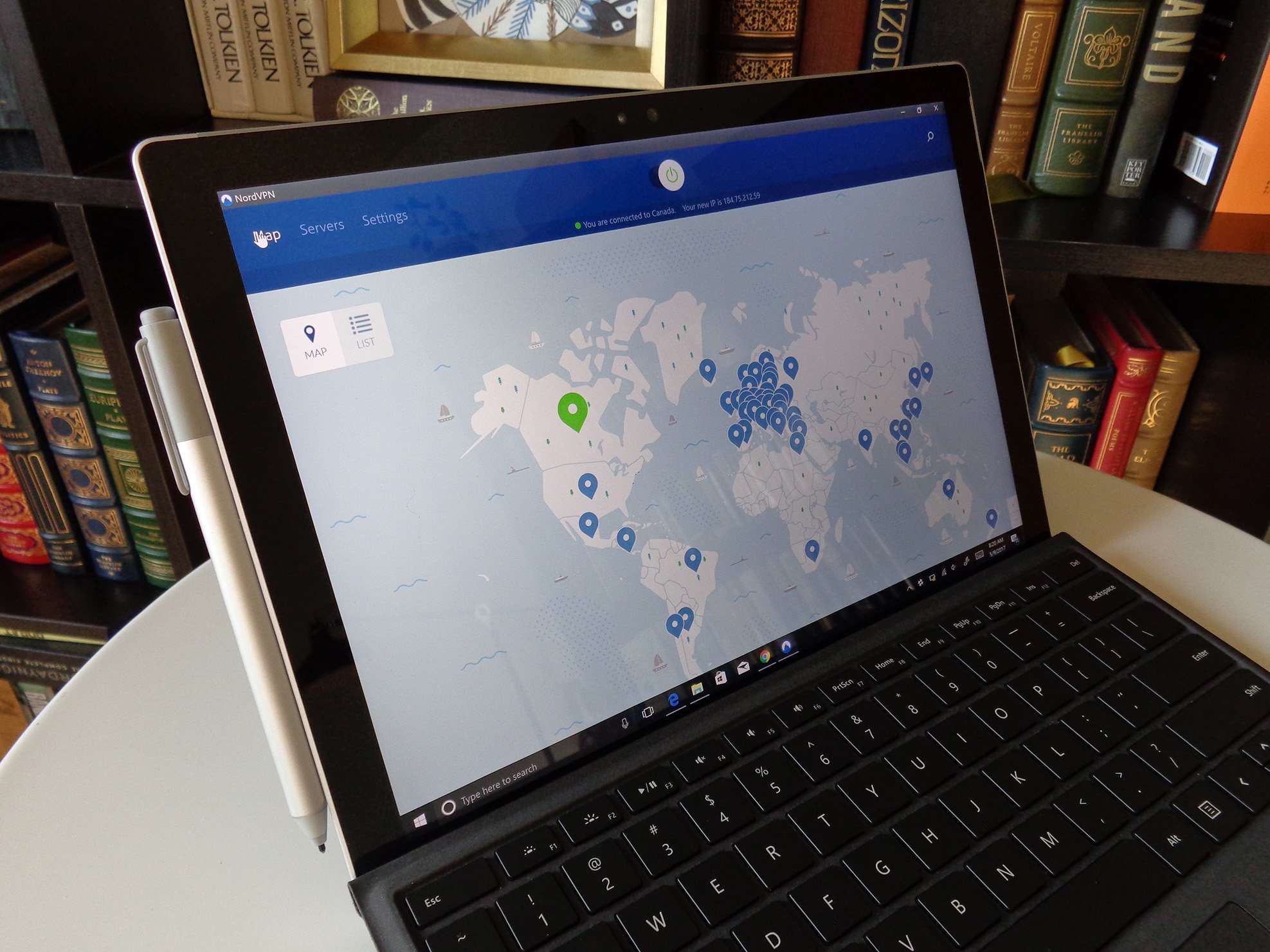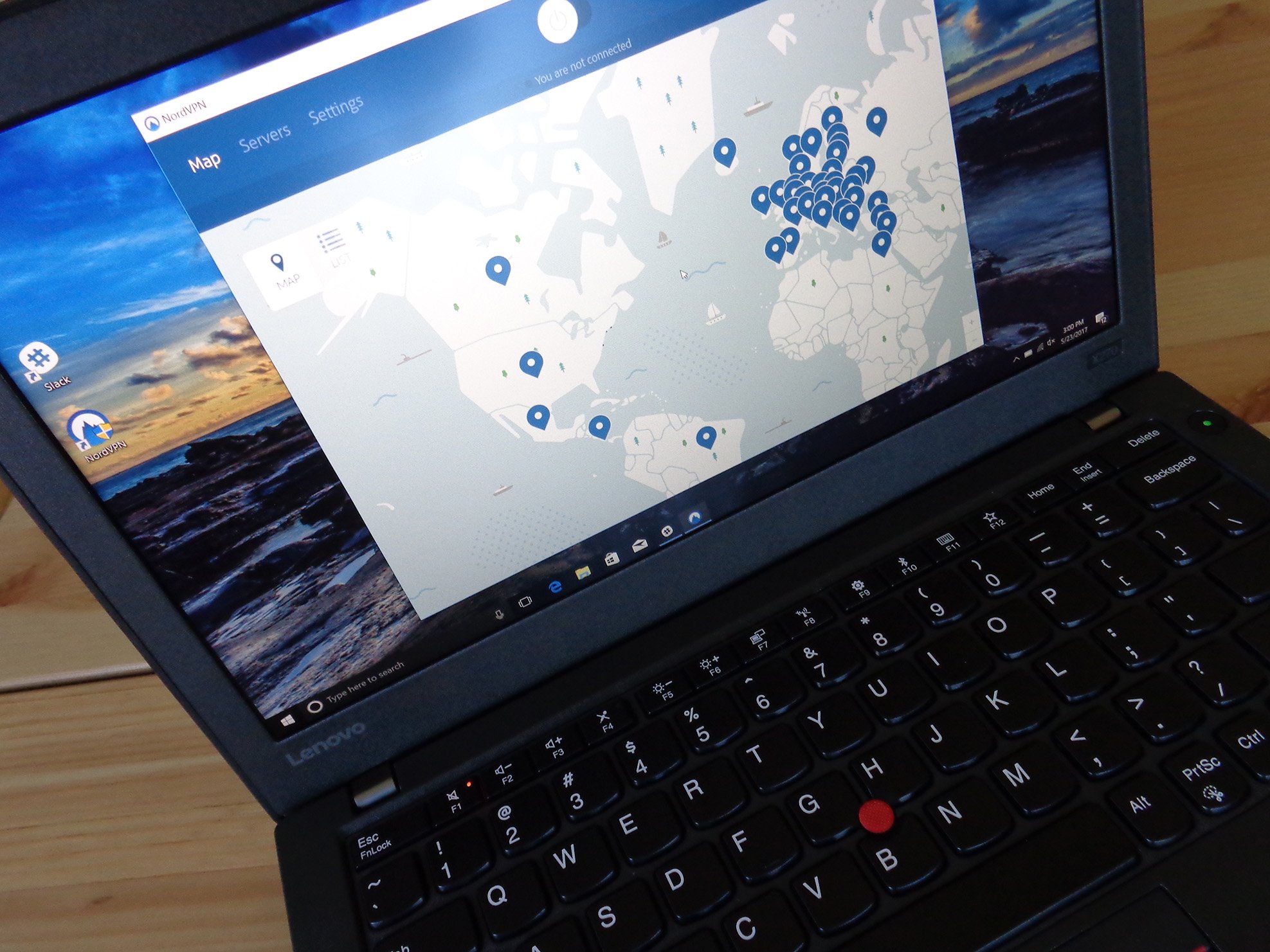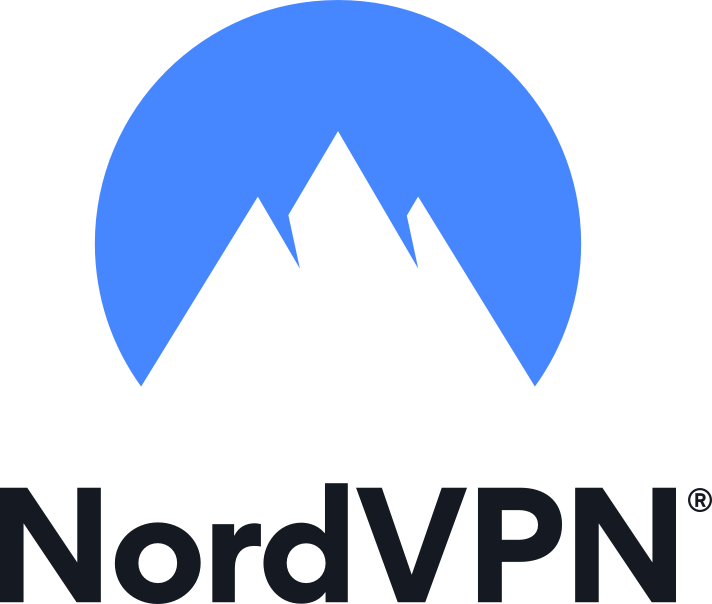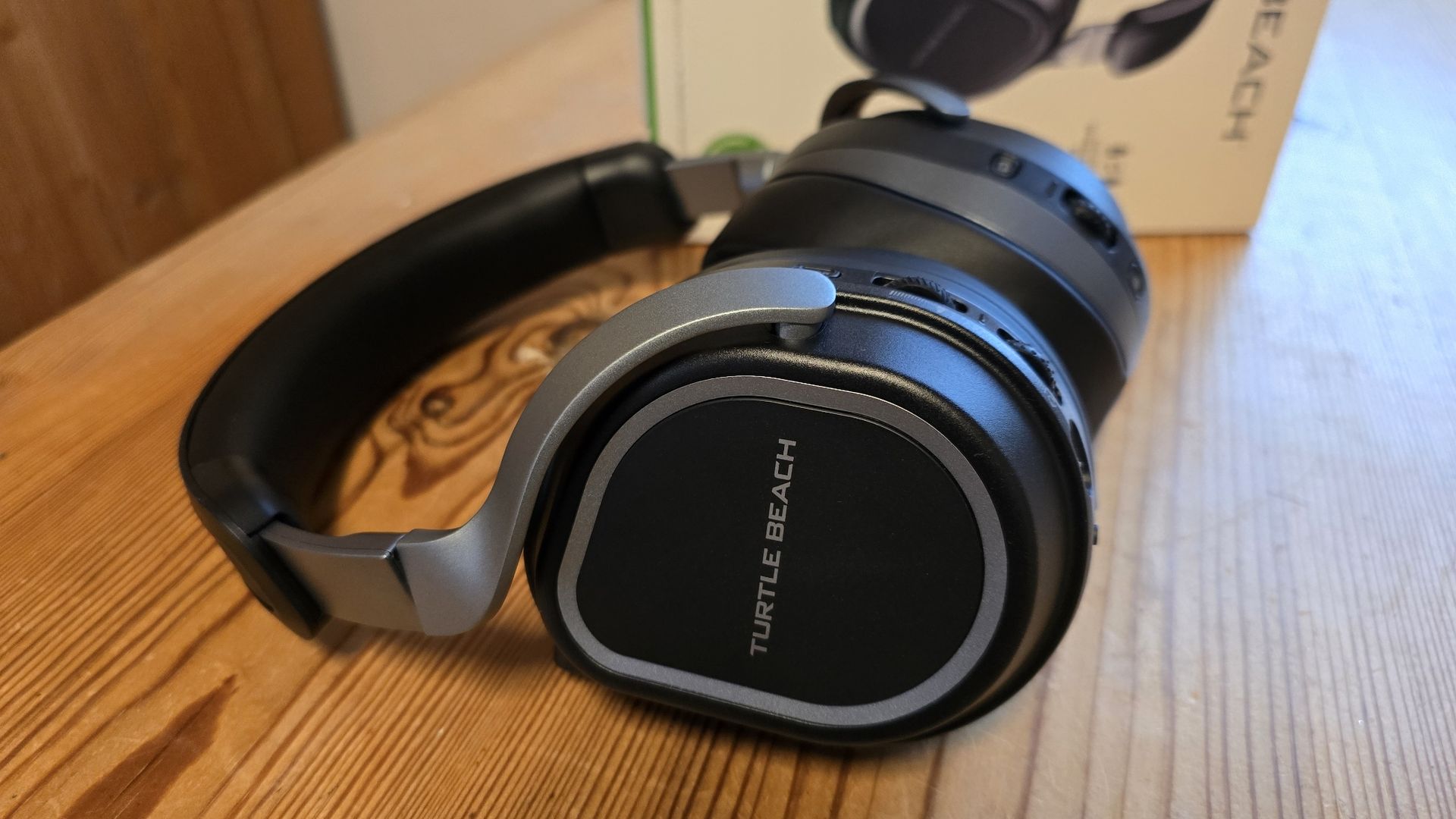NordVPN vs. ExpressVPN: Which should you buy?

All the latest news, reviews, and guides for Windows and Xbox diehards.
You are now subscribed
Your newsletter sign-up was successful

More simultaneous devices
NordVPN is an outstanding service that caters well to its customer base. It's secure, you can pay anonymously, there are almost no logs kept (except for minimal info to keep your account open), and there are long-term subscriptions available. It does, however, have servers spread out across fewer countries than ExpressVPN.
Pros
- Almost no logs kept
- Specialized servers
- Long-term subscriptions available
- Connect six devices at once
- Plenty of payment options available
Cons
- Servers in fewer countries than ExpressVPN

Servers in more countries
ExpressVPN is also one of the leading VPN services out there thanks to strong encryption, plenty of servers spread out across more countries, and the ability to pay anonymously. It does, however, only allow three devices at once and there aren't any long-term subscription options available.
Pros
- Almost no logs kept
- Strong encryption
- Servers spread across 94 countries
- Plenty of payment options available
Cons
- Only three devices at once
- No specialized servers
These two VPN services are among the best available now. Either one is going to deliver a high level of privacy for your online traffic, but there are some differences — especially in pricing plans, server locations, and jurisdiction — that set them apart.
NordVPN vs. ExpressVPN at a glance
| Header Cell - Column 0 | NordVPN | ExpressVPN |
|---|---|---|
| Servers | 5,242 in 62 countries | 2,000+ in 94 countries |
| Protocols | IKEv2/IPsec OpenVPN L2TP/IPsec SSTP PPTP | IKEv2/IPsec OpenVPN L2TP/IPsec SSTP PPTP |
| Jurisdiction | Panama | British Virgin Islands |
| Devices | 6 simultaneous | 3 simultaneous |
| Bandwidth cap | Unlimited | Unlimited |
| Logs | Almost none | Almost none |
| Payment options | Credit card Cryptocurrency Cash Other (AliPay, etc.) | Credit card Bitcoin PayPal Other (AliPay, etc.) |
| Support | 24/7 live chat | 24/7 live chat |
NordVPN vs. ExpressVPN servers and locations
Any good VPN service is going to have a lot of servers spread out across many countries, allowing customers to find something close and reliable to connect to. NordVPN has 5,242 servers to choose from — including those designed specifically for P2P sharing, double VPN coverage, Onion over VPN, and obfuscation to get around network firewalls — but they're spread out over fewer countries than ExpressVPN.
ExpressVPN has fewer servers (just more than 2,000) to connect to with no specialized options, though they are spread out over 94 countries, making its service more accessible to certain people in those locations or for those who wish to appear inside those countries. With both services, you get unlimited bandwidth to work with, so there's no fear of throttling or not being able to switch between servers as much as you'd like.
Both NordVPN and ExpressVPN use 256-bit AES encryption and give you plenty of VPN protocol options for myriad devices, including OpenVPN, IKEv2/IPsec, and L2TP/IPsec. However, only ExpressVPN lets you switch between protocols within its app, while NordVPN uses OpenVPN by default. Another thing to note is that NordVPN uses a 2,048-bit RSA key for HTTPS connections, while ExpressVPN has stepped things up to a 4,096-bit RSA key for the handshake. While this might not be a huge difference in security at the moment, ExpressVPN is setting itself up better for the future as RSA levels are cracked.
NordVPN vs. ExpressVPN jurisdiction and log keeping

Both ExpressVPN and NordVPN make it clear that they keep almost no logs that could be used against you, which would essentially defeat the purpose of a VPN in the first place. ExpressVPN's privacy policy mentions that no activity, connections, traffic, data, or DNS info is kept, but it also mentions that it keeps certain information — like the given name, email address, and payment info — in order to keep your subscription and account in order.

NordVPN's privacy policy says pretty much the same thing, with no connections, traffic, IP addresses, and other data being logged. As is the case with ExpressVPN, some information is required to keep your account in order, including email address and payment information. NordVPN operates under the jurisdiction of the Republic of Panama, which has no data retention laws, making it easy to avoid keeping logs. ExpressVPN operates under the jurisdiction of the British Virgin Islands (BVI), which likewise has no data retention laws.
Bottom line? If you use a throwaway email address, pay with something that's untraceable (like Bitcoin), and give a phony name (in the case of ExpressVPN), you should be mostly in the clear when it comes to privacy. Remember, this doesn't mean you're free to commit illegal activities.
NordVPN vs. ExpressVPN features and devices
NordVPN and ExpressVPN have an abundant selection of extra features over and above the regular connection protection. Both offer a killswitch that cuts all traffic if the connection to the server is interrupted, both have DNS leak protection that guards against your ISP seeing your real traffic, and both have apps for plenty of popular devices, including Android, iOS, macOS, Windows, and Linux. Both can also work with routers that have been flashed with popular firmware, like Tomato and DD-WRT.
ExpressVPN takes it a step further, offering apps for Chromebook, Kindle Fire, Nook, and BlackBerry, as well as offering browser extensions for Chrome, Firefox, and Safari (NordVPN works with Chrome and Firefox). There's also a specialized MediaStreamer tool that works with consoles and certain smart TVs, extending coverage even further.
Unfortunately, ExpressVPN only works simultaneously on three devices, while NordVPN works simultaneously on six devices. Setting up a VPN at the router level will take care of this, but many people will rely solely on an app on their phone and PCs. Considering the price difference between the two services, choosing one or the other will likely weigh heavily on this difference.
NordVPN vs. ExpressVPN pricing and payment options

NordVPN offers a few different subscription plans with specials popping up frequently. The three standard deals start with monthly and ascend to a two-year deal that will save you the most money. For about $12 you can get a month, for about $84 you can get a year, and for about $96 you can get two years. These are all billed once, so you'll pay the lump sum despite the monthly cost coming out quite differently. Know you'll need a VPN for two years? The price will work out to about $4 per month rather than $12 when paying on a monthly basis.
If you aren't particularly concerned about covering your tracks, regular credit cards are accepted. However, you can also pay anonymously with cryptocurrencies like Bitcoin and Ethereum, as well as third-party payments systems like AliPay. If you live in the U.S., there's also the option to pay cash at Fry's and Micro Center.

ExpressVPN likewise has three standard subscription options, though they differ from NordVPN. One month costs about $13, six months costs about $60, and a full year costs about $100. You'll pay more here than with NordVPN, and there's also no long-term plans for those who know they'll need a VPN for years to come and want to save some money.
Like NordVPN, there are plenty of ways to pay, including credit card, Bitcoin, PayPal, and third-party payment systems. Both services offer a 30-day money-back guarantee, so you can essentially try them out for free for a month before making a final decision.
Go with NordVPN for a more affordable option
NordVPN offers many of the same perks as ExpressVPN and will indeed keep your privacy intact. It's also about half the price when dealing with yearly subscriptions, and it can be used on twice as many devices simultaneously.
ExpressVPN is better for those in select countries
This premium VPN service doesn't have the same number of servers as NordVPN, but it does spread out what it has to more countries. If you need a server in a specific location not offered by the competition, ExpressVPN should be a better choice.
We test and review VPN services in the context of legal recreational uses. For example:
1. Accessing a service from another country (subject to the terms and conditions of that service).
2. Protecting your online security and strengthening your online privacy when abroad.
We do not support or condone the illegal or malicious use of VPN services. Consuming pirated content that is paid-for is neither endorsed nor approved by Future Publishing.
All the latest news, reviews, and guides for Windows and Xbox diehards.

Cale Hunt brings to Windows Central more than nine years of experience writing about laptops, PCs, accessories, games, and beyond. If it runs Windows or in some way complements the hardware, there’s a good chance he knows about it, has written about it, or is already busy testing it.


